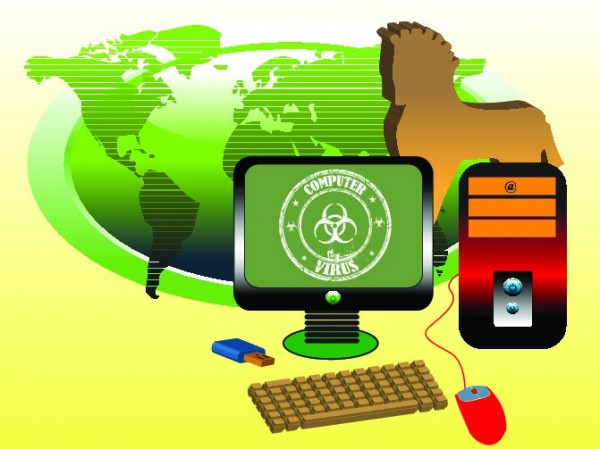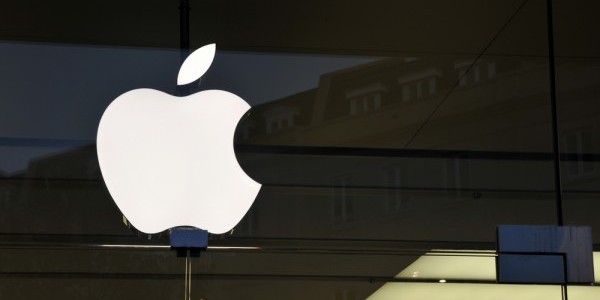
Ethiopian government outlaws VOIP, 15-year prison sentences possible
Troubling news is coming out of East Africa this week. International media site Al Jazeera has just picked up that on May 24th 2012, Ethiopia ratified new legislation called the 'Ethiopian Telecom Service Infringement Law'. The Legislation criminalizes any third-party Internet services not run by the state controlled telecom monopoly, Ethio Telecom, with Skype being a focus. However, the ban affects other services, such as Google Talk.
The new telecom law is meant to impede Internet telephony, with reported punishments of heavy fines and 8 to 15 years in prison if caught. The legislation prohibits all network telephony traffic, along with audio and video data traffic via social media, reports the The Africa Review.

Broken trust: Nation-state malware has a negative impact on GDP
The slow drip of revelations about Flame have kept this piece of malware in the news for more than two weeks so it is worth reminding people that most antivirus programs now protect against Flame (ESET products detect it as Win32/Flamer.A). The coverage of Flame was boosted last week by a conveniently-timed assist from leaks that put Stuxnet back in the headlines.
Frankly, many antivirus experts were underwhelmed by reports that anonymous officials in the US. government were asserting that the industrial-sabotage malware known as Stuxnet was developed as part of attacks on Iran's industrial infractructure sanctioned by the President of the United States (a lot of us already assumed that was the case). There has also been a longstanding presumption of Israeli involvement in Stuxnet and so it was no surprise to hear "Stuxnet is our baby; Obama disclosed it for his reelection campaign" coming from Mossad agents. The third unsurprising revelation is that part of the Flame code is nearly identical to code found in Stuxnet.

Stuxnet is a gift to criminals and nation states with malicious intent
A week ago the big malware news was the code known as Flame, Flamer, or sKyWIper (detected by ESET as Win32/Flamer.A), then on June 1, this news broke: "A damaging cyberattack against Iran’s nuclear program was the work of US and Israeli experts and proceeded under the secret orders of President Obama" (Washington Post). Clearly, the antivirus community is going to have a lot to say about this news and there will probably be several posts on the topic from ESET researchers.
Just to give some background, the attack was Stuxnet, a piece of malware that was documented in detail in the ESET white paper Stuxnet Under the Microscope. The goal of Stuxnet was to attack and sabotage Iran’s nuclear program, and as the New York times puts it: "the last of that series of attacks, a few weeks after Stuxnet was detected around the world, temporarily took out nearly 1,000 of the 5,000 centrifuges Iran had spinning at the time to purify uranium".

With the states suing over ebook price fixing, Apple needs to surrender
Attorneys General in 16 states filed suit against Apple and three publishing companies Wednesday, following a similar suit filed this morning by the US Justice Department. Unlike the federal suit, the states action also looks for monetary compensation in addition to the end of the collusive agreements between Apple and the publishers.
Connecticut and Texas lead the action, and are joined by Attorneys General in Alaska, Arizona, Colorado, Illinois, Iowa, Maryland, Missouri, Ohio, Pennsylvania, South Dakota, Tennessee, Vermont and West Virginia and the Commonwealth of Puerto Rico.

DOJ accuses Apple, five publishers of colluding to fix ebook prices
In December 2010 I asked: "Is someone fixing ebook prices?" Google's digital bookstore opened for business, and I started comparing prices only to find them fairly consistent across all retailers. I expected to see huge variances, not pricing consistency, which shouldn't be in a competitive market but is systematic of one where businesses conspire to "fix" prices.
I wasn't alone wondering about this abnormal consistency. After weeks of rumors, today, the US Justice Department filed a lawsuit against Apple and five publishers. The antitrust enforcement agency accuses them of colluding to fix ebook prices, thus impeding competition and, more importantly, consumer choice.

AT&T blames FCC for T-Mobile layoffs
You'd never know that the execs over at AT&T are bitter about the failed T-Mobile USA merger or paying out $3 billion for absolutely nothing.
Yesterday, T-Mobile handed out 1,900 pink slips, mostly to employees working in call centers. Gee, that's not a vital area, now is it? Today, AT&T rallies to T-Mobile's defense, blaming not the nation's fourth-largest carrier but the Federal Communications Commission. AT&T's rationale: The carrier would have preserved those jobs if allowed to buy T-Mobile.

Obama's 2013 budget: SOPA rises from the grave
While the White House in January signaled deep concerns about the Stop Online Piracy Act (SOPA) and PROTECT IP Act (PIPA), President Barack Obama's 2013 budget proposal suggests that he still plans to push for wider enforcement of intellectual property, a concession to the entertainment industry that could prove critical to his reelection efforts in 2012.
Last month, coordinated protests erupted across the Internet as prominent websites, Wikipedia among them, blacked out for 24 hours. Protesters argued that either bill, if passed into law, would greatly impede free speech and give the Justice Department unprecedented powers to censor the Internet. Those hailing victory over SOPA and PIPA should have a look at back-door enforcement championed by the White House.

Apple protesters make me really mad
About four months ago, thousands of people held vigil outside Apple stores, honoring deceased cofounder Steve Jobs and joining a sudden canonization -- deification, really -- process that raised him above mere mortals. Today, crowds return to those same shops in anger, protesting workers' treatment at Apple factories in China. Whoa, how brands, and emotions about them, suddenly change.
I'm simply appalled, not by Apple, but by the protesters. This is no Arab Spring, people.

MegaUpload users may gain temporary access to their files
Users of MegaUpload may have a brief window to retrieve files from the site after the law firm representing the file sharing service says it is negotiating a solution with the US Government. While the primary function of the negotiations is likely to gather evidence so that MegaUpload's lawyers can build their defense, it is possible the general public may temporarily gain access to their accounts.
In the United States, the file sharing service uses two hosting providers to store data, Carpathia Hosting and Cogent Communications. When US authorities shut down the service two weeks ago, it also froze MegaUpload's assets, leaving it no money to pay bills.

We must blame Apple for China
Charles Duhigg and David Barboza’s recent New York Times article, "iEconomy: Human Costs Are Built Into an iPad", has created quite a firestorm. The article is a blistering expose of Apple and its Chinese manufacturing partners. For those that haven’t read it, please do. This is important, necessary journalism.
Apple apologists are quick to defend the company's behavior as "Me too". Critics call for boycotting Apple products. Holding Apple accountable is the right thing to do for all tech companies. We must see the apologist arguments for what they are -- fallacies that disempower us from action -- and hold up Apple as standard-bearer reformer for all Western technology manufacturing in China.

Mozilla pleads: 'Protect the Internet' from Stop Online Piracy Act
This morning, as I write, the US House of Representatives is conducting a hearing on the Stop Online Piracy Act. Senate version of the bill is PROTECT IP. Either bill would dramatically change how Americans use the Internet, by granting power to shut down sites for many reasons -- in the case of SOPA simply for linking to another site or content that may be pirated.
I'll probably write a commentary about the bills, which their critics claim will undermine free speech that made the World Wide Web an enabler of communications, commerce and transparency. Many opponents of both bills express greater concern about the House version, SOPA, which was introduced in late October. Patrick Leahy (D-VT) introduced the Senate version, PROTECT IP, in May. The bills' motivations are simple: To extend copyright protections to the Internet.

FCC sued over leaving wireless data out of open Internet rules
Media reform group Free Press has filed suit in the US Court of Appeals for the First Circuit, asking the courts to review the Federal Communications Commission's "Open Internet Rules." Those policies were passed last December in an effort to create a formal code of conduct for broadband providers following accusations of unfair traffic handling.
These rules force providers to be transparent about how they handle Internet traffic and forbid the favoring of one company's traffic over another. But it's not the same for wireless data.
